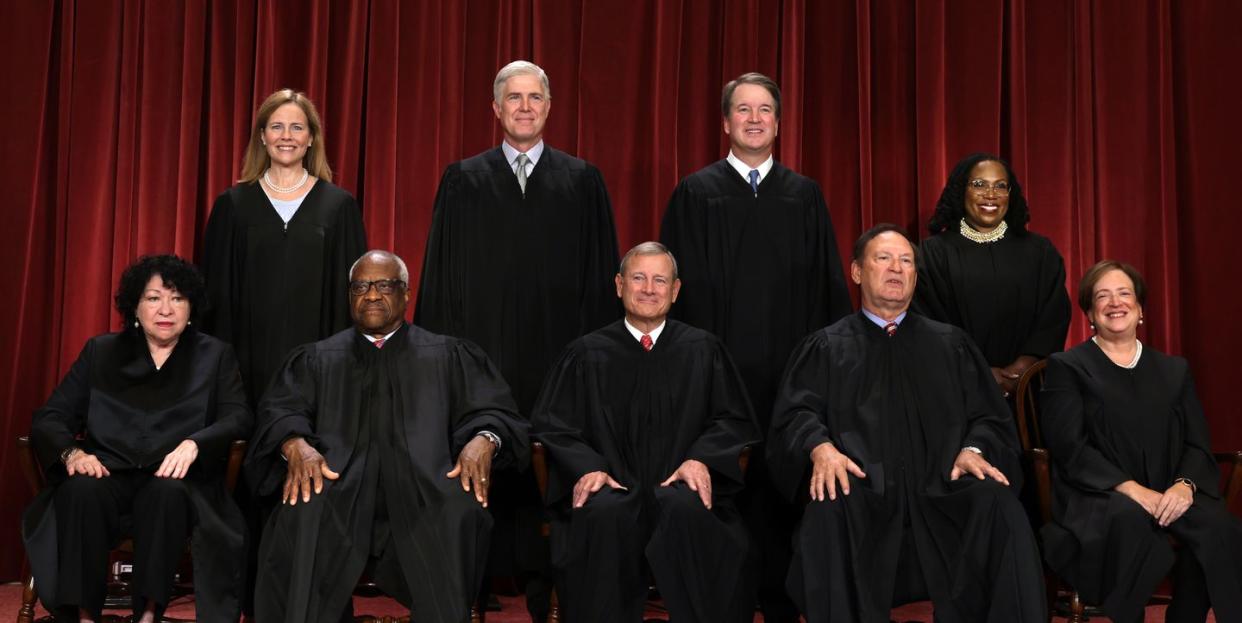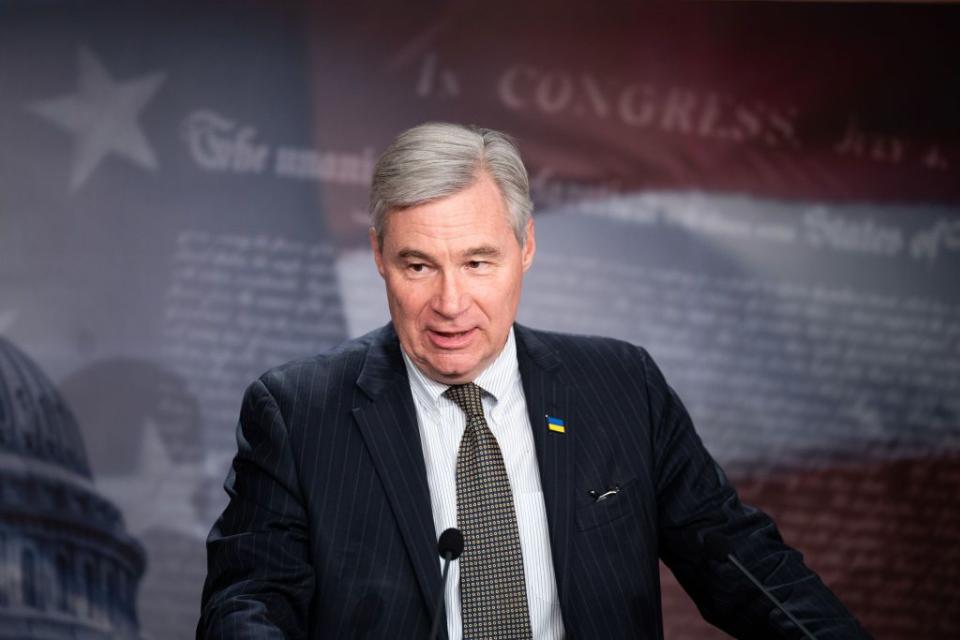Oh No! Supreme Court Justices Must Now Disclose the Unethical Gifts They Receive

Financial gift disclosure guidance has been tightened to ensure gifts from businesses, as opposed to individuals, must be publicly disclosed.
The Judicial Conference clarified to Sen. Sheldon Whitehouse that this new guidance extends to Supreme Court Justices as well.
There have been allegations in the past that Justices have hidden unethical gifts from companies behind 'personal hospitality loopholes,' which had been given to curry favor with said justices.
We've previously reported on how the TikTok generation has apparently concluded that bribery isn't bribery if you call it a gift. Well, it turns out that for a good long while, the financial disclosure guidance we had in place for Supreme Court Justices and other federal judges seemingly agreed with that sentiment. But thankfully, not anymore.
According to Bloomberg Law, the Judicial Conference "clarified regulations around financial reporting exemptions and what one U.S. senator calls a 'personal hospitality loophole' in changes disclosed Tuesday that took effect March 14."
The article quotes a letter written by Roslynn Mauskopf, director of the Administrative Office of the US Courts, to Sen. Sheldon Whitehouse of Rhode Island, stating, "An exemption now applies only to meals, lodging, or entertainment and is intended for gifts of a personal nature."

So what exactly does this mean? What is a "personal hospitality loophole," and how do these new regulations apply to it? We'll try and explain it as best we can, bearing in mind that we're no legal scholars. And to avoid any possible defamation of any actual current day Supreme Court Justices in this example, let's create a hypothetical one here.
Like, let's pretend a celebrity suddenly became a Supreme Court Justice. Like if the actor from that old NBC show Ed decided to follow his character's career in law, and made it all the way to the Supreme Court. You remember him, actor Tom Cavanagh.
Yeah, let's call this hypothetical judge Justice Cavanagh.

So, in this scenario, let's assume there's been a lot of concern about debts Cavanagh accrued in his time as an actor, before joining the court. That perhaps Justice Cavanagh had, say, $200,000 in credit card debt and $92,000 in country club fees that were paid off in a manner that seemed extremely suspicious. And in response to this, let's pretend our fictional Justice Cavanagh would claim that any money he'd received was all in the form of gifts that were "excluded from disclosure in judicial financial disclosure reports."
Maybe Cavanagh would even assert to Senator Sheldon Whitehouse that it "bears repeating that financial disclosure reports are not meant to provide one’s overall net worth or overall financial situation. They are meant to identify conflicts of interest. Therefore, they are not good tools for assessing one’s net worth or financial situation."
Heck, to some, that might even read like a villain gleefully monologuing about how they've totally gotten away with it, thanks to loopholes. A villainous monologue like those actor Tom Cavanagh, who's definitely the Cavanagh we're talking about here, would give on The CW's The Flash.
While these new disclosure guidelines wouldn't force Justice Cavanagh to disclose gifts received from wealthy family (in real life, Tom Cavanagh's father was the Academic Dean of Champlain College, but for this exercise, let's pretend that his dad was, say, a longtime cosmetics lobbyist who retired in 2005, receiving a compensation package of $13 million that could be virtually untraceably funneled into various causes thanks to loopholes), what it would do is force Cavanagh to declare gifts given by an entity, like a business, rather than an individual.
So, in our analogy, let's say Justice Cavanagh's publicized loophole exploitation led to businesses or political action committees (PACs) thinking they could gift exorbitant trips to Cavanagh, paying for travel to and from—and various gifts within the confines of—a resort or other destination on the company's dime, in order to gain favorable treatment should any cases involving them or their interests appear before the bench. Now, Cavanagh would legally have to disclose any such gifts as part of their annual financial disclosure, which is public, so that there's no hiding these personal ties, and it can be insisted that Justice Cavanagh recuse himself from cases where he has been unfairly influenced.
Senator Whitehouse, who is the chairman of the Senate Judiciary Federal Courts Subcommittee, is optimistic about this new tightening of disclosure guidelines. "I’m hopeful this rule is a harbinger of more ethics and transparency improvements to come for the Supreme Court," Whitehouse notes.
As for why it's important for Justices to not have personal ties to the cases that appear before them, let's go with another hypothetical.
Let's say former teen heartthrob Jonathan Taylor Thomas was seated on the Supreme Court. And let's say Justice Thomas' wife had a ton of text messages related to an attempted insurrection at a nation's capital. Justice Thomas would then absolutely, by any ethical standards, have to recuse themselves from any cases related to that, since they would very clearly be influenced by forces outside of the confines of the courtroom, which could destroy the entire legitimacy of the Supreme Court as a whole.
Thankfully, we don't live in a country where actors from Ed or Home Improvement sit on the highest court in the country, so all of this is purely hypothetical. Though, probably good to tighten up those disclosure loopholes, just in case.
You Might Also Like

